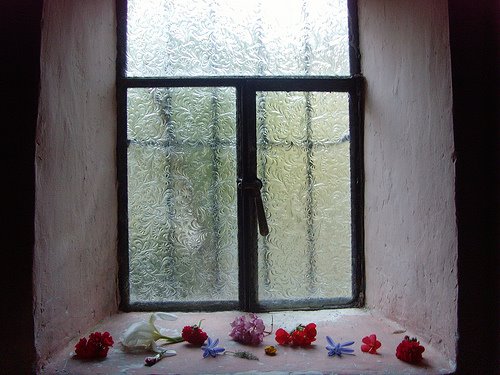ethnosocial observations in an institutionalized educational setting...
~What do gloves/ tucked in pant legs/ cut eyebrows mean?
~What is the definition of chale, gavacho, and carnal, and would those definitions be something i would feel comfortable posting on the blog?
~an indescribably warm and fuzzy feeling attacks me i get when i watch kids read... their little mouths moving sounding out words... muttering this and that... brows furrowed in concentration... it's amazing. i think i should be a teacher when i grow up.
~from one girl to another, "i don't like ugly people."
~teacher: "Okay, so have you guys ever heard of Martin Luther?"
response, in unison: KING!
~boy: "Where's Tupac at?"
~a girl's response to a curricular rap describing Henry VIII: "uh-oh, Henry! go-on Henry!"
~kids still show each other dirty words in the dictionary
~ teacher: "The Pilgrims were almost like a religious cult. They're extremists."
~boy: "I don't LIKE critical thinking.
teacher: "You are going to have a long, sad life..."
~ one girl, explaining her lack of homework, "See, what happened was, I was at the House of Burgesses, and they got robbed. Is that how you say it? 'Burgesses' or 'Burguesses?' "
~(Yankee) teacher: "Up north, we eat turkey, yams, green beans for Thanksgiving. And we don't have to eat all that weird junk for New Year's. What's up with eating black eyed peas for New Year's anyways?!"
boy: "For Thanksgiving, we be eating fajitas... rice... corn... beans... then for Christmas... we have it ALLLL... OVER... AGAIN!"
(in the same conversation:)
teacher: "What's the deal with people down here calling these beans 'black eyed peas'? They're BEANS!"
boy: "Yeah, I know. See, at my house, we call everything that looks like a bean... a bean."
~ teacher: "Generally, revolutions don't begin with the poor. Why?"
(response)"They TOO busy trying to get money to pay the rent!"
~teacher: "Bacon's rebellion: they got mad because they didn't have enough...?"
boy: "Bacon!"
~names are power. if someone "gives" you their name, you have a right to them. a person without a name is basically inaccessible to you... until you ask.
~these kids are absolutely beautiful when they smile...
thought two:
"First, the early barrios were situated in ecologically marginal areas of the city, places such as gullies and other lowlands that developers considered undesirable. These enclaves were socially and physically separate from Anglo American neighborhoods--"the other side of the tracks"--sometimes literally. Visually distinct in their appearance and their amenities--dirt roads, limited public utilities or none, outhouses, older run-down homes, and so on--these barrios were stigmatized as the places where poor, unskilled, "dirty" Mexicans lived (Moore, 1978, 1991).
Early immigrants' lives were affected by economic marginality as well. Entry-level, low-paying jobs in agriculture, ranching, and light industry were typically their only opportunities for employment. Much later, when service industries emerged as sources of jobs, many immigrants became gardeners, car washers, janitors, dish washers, domestics, and the like. In spite of the obstacles, most of the Mexican immigrants fashioned productive lives for their families, and their Mexican American offspring often became even more successful, though faced with continuing racial and ethnic discrimination. A life of persistent and concentrated poverty, however, ensued for a substantial minority of barrio dwellers who could not escape the secondary or segmented labor market. These are jobs with no room for advancement, with very low wages, and with few or no benefits; in short, jobs that generally exploit and manipulate a marginal labor force (Moore & Vigil, 1993).
The repercussions of poverty and exploitation have had wide-ranging consequences in the social and cultural life of youth. The breakdowns in social control, as well as cultural and ethnic identity conflict, have had a major impact on the making of gangs and the shaping of gang members. What began as wayward kids hanging around the street, almost detached from family influences, unfamiliar with and uncommitted to schools, and in fear of the "law," gradually became rooted as a new subculture: the street gang. Moreover, because a gang subculture now dominates the streets, youngsters who become street socialized must adjust and conform to the culture that these "street elites" have fashioned.
Where the parents, schools, and police have left off, the gang subculture has taken over and become the substitute caring, teaching, and sanctioning influence. "
~from Learning from Gangs: The Mexican American Experience by James Diego Vigil
thought three:
it's not funny anymore.


0 Comments:
Publicar un comentario
<< Home